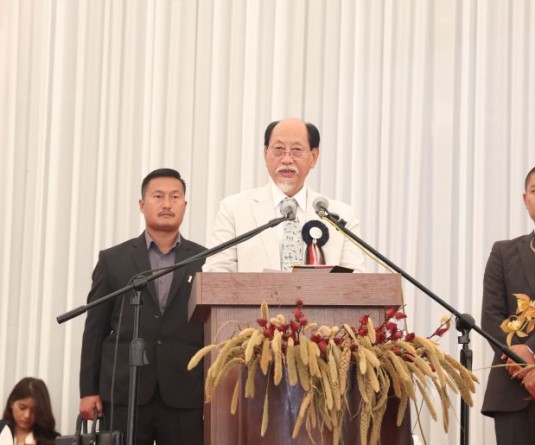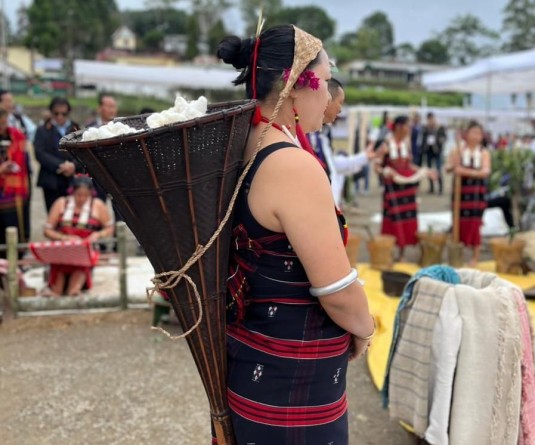
Dimapur, September 30 (MExN): The third colloquium of the Naga Scholars’ Association (NSA) was held on September 28 in the School of International Studies, JNU, New Delhi.
The theme was centered around issues concerned with the political economy of the North-East Region and the question of justice or injustice thereof associated with it.
The argument of the opening paper by Dr Raile R Züpao from Harvard University, UK titled “Infrastructure of Injustice: A perspective from within” was to disentangle the pattern and distribution of infrastructure in Manipur, a release here stated.
“It was premised on the argument that infrastructure is fundamentally a relational concept and its development has always been an act of power and is a space of contestation,” the release said. Colonialism as such is not over for the tribes in Manipur as elsewhere it can be experienced in different forms, ‘colonialism by discourse’ being the most pervasive form.
It further questioned that “if infrastructure is seen as a tool for economic growth then one is prompted to ask the question then how is North East to be seen?; For whom is the present infrastructure development intended for if it bypasses the local economy and People?”
“So in many cases injustice is embedded in the infrastructure and tribes have often been excluded and denied agency in the process of infrastructural development,” it argued.
The second paper presented by Phuireingam Hongchui was on the “Political Economy of the Nagas.” The focus of the paper was on examining the nature and developmental discourse that concerns the political economy of the Nagas post-Independence.
He argued that what was once a self-sufficient subsistence economy that allowed room for a communitarian as well as liberal notion of distribution to co-exist was now at threat. The reason for such a state of affair is because the political economy of the region is understood and thus defined more often from the point of a conflict zone.
Such readings in turn lead to a deepening of the political conflict rather than resolving it. Thus, he stressed on the need for keeping in mind the peculiarity and context specificity of the region if one is to arrive at a better understanding of the political economy of the Nagas.
Earlier, Dr Zuchamo Yanthan, President of NSA welcomed the gathering and introduced the resource person and the speakers. The session was chaired by author Prof AS Narang who has a long experience of teaching and research in different universities in India and abroad.
The programme ended with a vote of thanks by Dr Lungthuiyang Riamei General Secretary of NSA. The rapportuer of the session was Solomon Zingkhai.





